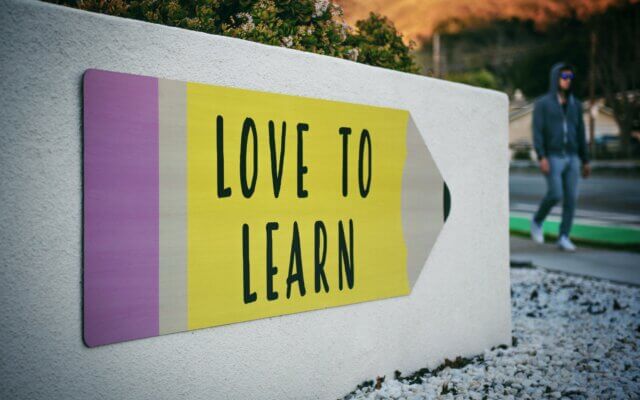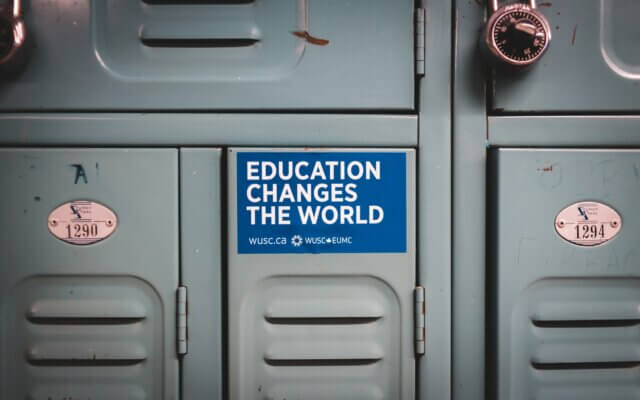Programme & action: ERASMUS+, Key Action 1: Training Course
Venue: Rites, Latvia
Dates: 5 – 13 November 2017
Participants: Żaneta Górska, Natálie Zelinková, Karolína Pěčková
Please read the info-pack. Please view the project photo-album.
During the TC this video was created. One of its authors is Jan Mika, an EVS volunteer sent to Piedzivojuma Gars by EYCB (please see details about this EVS here.).
Participating countries: Bulgaria, Czech Republic, Romania, Spain, Greece, Italy, Latvia. If you are a resident in one of these countries, please apply by submitting your application
Hosting organisation: Piedzivojuma Gars
Project report:
November is just normal and cold month before Christmas. But what made this one special for me was training course in Latvia from 5 – 13th November 2017. I was studying, I was travelling, I was discovering, I was experiencing. It was project Etnosphere, adventure spirit and it was the best project I have ever been to.
We met in capital Riga in cosy Cafe and our course started with delicious welcoming diner. However, we didn’t even finish a desert and program have started. Whole group received money for breakfast, lunch and travel cost and our first task was to prepare everything and get to our accommodation by ourselves. I will never forget shopping in the centre of Riga in the middle of the night and running to catch the train next morning. And this was just beginning!
After one hour in train was our next task 20 km hike in Latvian forest, including jumping to the swamps and getting lost several times. The hike was probably the best teambuilding I can imagine. We had lots of time to speak with each other and enjoy Latvian nature. First day was exhausting but full of adventure spirit!
Next day started with teambuilding activities. But since this was unique project, we were balancing on slacklines and walking on planks above a swamps. The third and fourth days were more about learning how to be a coach and trainer. We were practising, how to create and deliver activity in a right way and we were trying to increase our skills through constructive feedback. Moreover, we had special opportunity to visit two different schools and deliver our activities to local children on Friday. This was just amazing and I am happy, that we were successful and children enjoyed day with us. And what to do after exhausting day? Party! Some of us prepared karaoke and dancing party to finish this perfect day.
Saturday was adventure day! The organization prepared for us many challenges to get us out of comfort zone, do crazy stuffs and cooperate with each other. These included bungee jumping, slackline, climbing wall, Jacob´s ladder and many others. We overcame our fears and push our abilities forward, there are some moments I will never forget J
The last day we were evaluating a lot. However, what made it special was evening in sauna and whirlpool, where we were celebrating our last night together.
To sum it up. Why go to Latvia? Riga is wonderful, food is tasty and nature is breath-taking! Why to go for such a project? People are amazing and they inspired me a lot, you may overcome your fear or challenge yourself. You can learn a lot, even more than by sitting in a school. It is just unforgettable experience and if you do not try, you will never see.
Natálie Zelinková
_________________________
„Ethnosphere is humanity’s great legacy. You might think of the ethnosphere as the sum total of all thoughts and dreams, myths, ideas, inspirations, intuitions brought into being by the human imagination since the dawn of consciousness. It is the product of our dreams, the embodiment of our hopes, the symbol of all that we are and all that we have created as a wildly inquisitive and astonishingly adaptive species. And just as the biosphere is being severely eroded, so too is the ethnosphere, and if anything, at a far greater rate.“ Wade Davis
Europe is changing and as part of this change we continue meeting new situations that are connected with inclusion, diversity, meeting and of different cultures and beliefs and seeing them to disappear. As a beacon of light we as Europeans are not only meant to truly live our common values such as tolerance, freedom of speech and inclusion, but also show and teach others the ability to see strength in diversity.
The project Ethnosphere aimed to educate youth workers, youth leaders and educators on non-formal educational outdoor programs, activities & methods that supported cooperation, social inclusion and strength of diversity.
Our objectives were:
- To bring together 25 youth leaders, youth workers and educators from 7 countries, where at least 10 of them are with fewer opportunities
- To improve skills and competences with focus on inclusion & outdoor methods of 25 participants
- To create minimum of 7 follow-up outdoor programs in local partner communities focused on social inclusion and non-formal learning
- To create a toolbox combining outdoor program & activity creation together with best examples
- To ensure evaluation throughout the whole project by 25 YouthPasses, 25 evaluation forms from each participant and 7 project partner questionnaires
- To have at least two publications and one video about the project to reach wider audience
- To raise capacity and competencies of 7 partner organisations for creating & implementing educational outdoor programs
Project brought together 25 youth leaders, youth workers and educators (12 with fewer opportunities) from 7 countries aged 18+ who were interested and motivated to bring their skills & competencies in outdoors and social inclusion to the next level.
Through a 7-day Outdoor Training Course by using outdoors, games, storytelling, theatre, discussions, creative and challenging exercises, reflections, feedbacks, videos and celebrations participants reached deeper understanding and ability to use outdoors as a method to address both social inclusion and any other relevant topics in their youth and educational work. They developed and improved their ability to create and deliver high quality non-formal educational outdoor programs focusing on inclusion, cooperation and diversity. Also participants now are more able to use outdoor activities in any other context (formal learning, team building, tourism).
Organisations, youth leaders, youth workers & educators in partner networks and on broader scale have a brand new outdoors toolbox for creating and delivering inclusive educational programs and activities outside. Wider part of society are more able to receive additional information through videos and publications with valuable and applicable content. Outdoors as a method was and still is used to develop more accepting and on cooperation focused society which can see strength in diversity and appreciates differences.
Our long term benefits of this project was to have more connected and on cooperation based society and this wider scale aim is being pursued daily by our participants and partner NGOs. Through these actions everyone involved can learn and connect through nature and through our humanness more. Also involved people understand more that loosing even the smallest part of our diversity is too high price to pay. And in such conditions we all learnt more of the true meaning of “strength in diversity”.
And that was and still is Ethnosphere.
_________________________________________
When you hear word “education” – what is first that comes to your mind? Is it our educational system? Or maybe school or university?
And is there space for other associations?
Our educational system has created a strong mark in each of us no matter if we did or didn’t enjoy our experiences in school sitting in rooms learning things that are useful but maybe in that time seemed so pointless. Or maybe we remember many stressful hours for preparing for tests. Or in some harder cases maybe we remember how we were bullied. Or maybe you are one who still is in educational system and sometimes wonder – is this all? Is this how always learning takes place?
We challenge you to think in a bit broader range – what is the way we learn? Is it possible to learn from every, even day-to-day experiences in a way that it brings as satisfaction, fulfilment, joy, growth, development?
And if we look further – would you be willing to learn while spending time outside, enjoying nature and in same time where terrain, weather conditions and unexpected events create on-spot challenges?
What if it would be even possible to not just have team building activities outside that are so many times associated with outdoors, but even more?
What if you or your kids, siblings, nephews or nieces could learn about physics, mathematics, art and many more subjects while being outdoors? And to learn it all through experience, through discovery, exploration and cooperation.
To change our perception of education is not an easy thing, especially if we have gone through the formal system and haven’t had good experiences neither there or outside of it (yes, sometimes we go to seminars, work trainings and other places but let’s be honest here – so many times they are still boring, feel like “that mandatory thing I have to do” and at end doesn’t really change our perception of education in its core).
And that’s why there was a question in the beginning – is there still space for other associations?
Our way of taking concepts, ideas and believes as something unchangeable can limit us. And if we never look at a concept “education” from more than one perspective we can lose many opportunities of learning and having new insights for us.
So many times we have forgotten that we were the ones who created our “education” concept, started to take our definition of “education” for granted and as the only way of seeing this phenomenon.
In the project “Ethnosphere” funded by Erasmus+ program organisations from seven EU countries came together to challenge perception of education – is it possible to learn while being outdoors? And not just learn, but also develop on many levels as a person who is part of a group and community. We re-thought what is “education” and how we can create a deep, long-lasting learning and impact in youth and pupils through outdoor non-formal educational activities and programs.
People from various backgrounds and regions in EU came together to develop a new way of creating space and opportunity for learning about social inclusion, cooperation and simply connection between various groups of people. And to do that all while using outdoors as method and tool. Participants created non-formal educational outdoor activities and programs and also delivered them in schools of Latvia to provide new educational opportunities for pupils and youth. And all that was done outside in middle of Latvian November when weather conditions are not most welcoming – it was raining a lot, but everyone still enjoyed themselves.
Being outdoors bring instant equality to people as we have same basic needs – need for food, water, shelter, toilet and safety. And through proper use of outdoor tools it also brings equity to a group of people and provides opportunities for everyone to be, live and learn. Through a simple hike even a group of unknown, biased people can be brought together and create higher level of cooperation between these people. Sometimes all that is needed to do is to create context and provide such a group with space to explore and grow together.
Besides through outdoors it is possible to create instant inclusion of everyone, as everyone in a group is valued member and has a role. And together everyone can learn from each other, nature and experience.
When such learning takes place, we call it education. Even if it’s outside of usual educational system without tests and exams, it is still education in our perception. Sometimes the learning is about cooperation, communication or inclusion, sometimes about life in general.
So we ask you – what is your concept of education? And is there space for different perceptions and perspectives?
This article has been written for project Ethnosphere, that was co-funded by the Erasmus+ programme of the European Union. The European Commission support for the production of this publication does not constitute an endorsement of the contents which reflects the views only of the authors, and the Commission cannot be held responsible for any use which may be made of the information contained therein.


